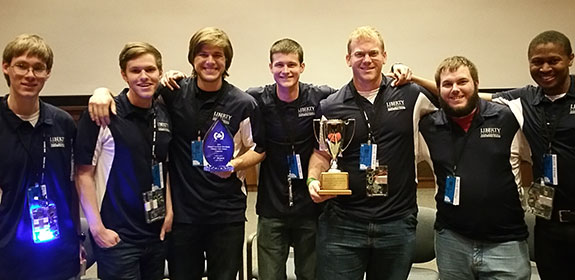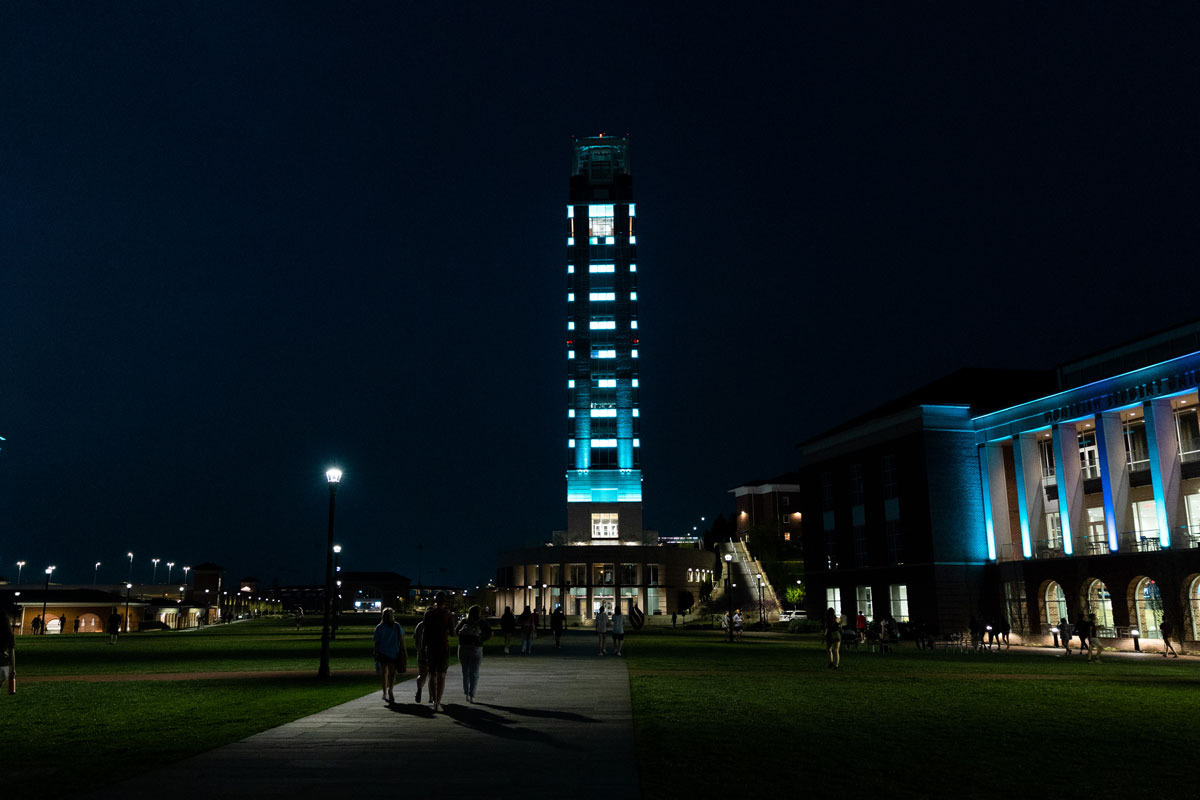Search News Archives
Filter News Articles
Additional Navigation
Cyber defense team wins regionals, advances to nationals
April 6, 2016 : By Office of Communications & Public Engagement

A team of seven students from Liberty University’s Cyber Defense Club won the 2016 National Cyberwatch Center Regional Mid-Atlantic Collegiate Cyber Defense Competition (MACCDC) this past weekend.
Liberty’s team included senior captain Dustin Bowe (an electrical engineering major), senior Troy Cosner (computer science), junior James Hogan (computer science), senior Michael Merrill (computer science), senior David Yates (computer science), senior Joseph Moyer (computer science), and freshman Elijah Barker (electrical engineering).
“I can’t be more proud of our students,” said Dr. Mark Shaneck, the team’s coach and Liberty’s online chair for cyber security. “They are a great group of kids that work really well together and are an incredible team. That coupled with their technical skills and the leadership of the team captain Dustin Bowe brought them the victory.”
With the win, the team earned the right to represent the region in the 2016 Raytheon National Collegiate Cyber Defense Competition (CCDC) to be held April 22-24 in San Antonio, Texas. Nine other teams from regions across the country, including Northeastern University, California State Polytechnic University (Pomona), and Brigham Young University, will compete in a new challenge scenario to protect simulated systems against cyber attacks from professional testers in a controlled, scored setting. The tournament is considered the “Big Dance of Data Defense.”
“This is a tremendous opportunity for Liberty University to be represented in this field on a national stage,” Shaneck said. “This is the premier collegiate cyber defense competition, and this year our university gets to be a part of it. This is a great chance to continue associating our name with greatness in the field of Cyber Security and will help shine a light on our efforts there.”
He added that students will have networking opportunities at nationals.
“There are a lot of corporate sponsors who use this, as well as the regional events, to recruit the best students from across the country,” he said. “I have heard stories of companies giving job offers to students at the competition. I’m not talking about the companies asking the students to apply, but actual written job offers given to the students on the spot.”
Liberty qualified for the Mid-Atlantic regional after a virtual preliminary round held on Feb. 25. At the MACCDC held March 31-April 2 at the Johns Hopkins Applied Physics Lab in Laurel, Md., Liberty outscored teams from the University of Maryland, West Virginia University, Radford University, Towson University, Capitol Technology University, Bloomburg University, and the University of Maryland (Baltimore County). The MACCDC tested students’ knowledge and skills against electronic assaults by security professionals on simulated, real-world systems. This year’s scenario focused on the critical infrastructure of a financial institution whose information technology operations were targeted. Over three days students were tasked to defend the institution from cyber attacks.


